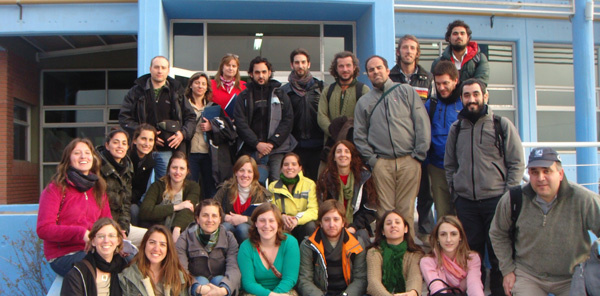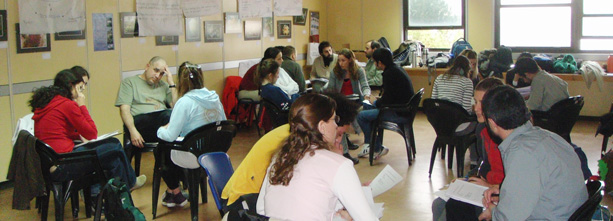The training program for Young Leaders of Marine Conservation aims to train professionals with a trans-disciplinary approach, while fostering communication and exchange of experiences between them. The courses are aimed at issues related to the implementation of public policies, societal values , decision making processes, strategic planning, public participation, conflict resolution, communication and education strategies.

In a context of growing conflict regarding use of coastal and marine resources, it is important for students and young professionals to understand the importance of trans-dissciplinary work to be effective in conserving biodiversity. There are various research centers, universities, NGOs and government agencies scattered along the coast of the Patagonian Sea region carrying out relevant activities regarding the marine environment. However, most of these activities are undertaken on an isolated, disciplinary or sectoral basis, focusing in a small group of issues or objectives. In addition, current education programs for undergraduate and graduate students interested in the conservation of marine resources are not fully adequate to train future professionals in resolution of environmental problems. This is because formal education is focused mainly on technical skills and natural or physical sciences, not taking into account relevant tools from the social sciences, which are essential to address the human dimension of conservation.
Many students and young professionals are conducting or participating in marine conservation projects in isolation along the Patagonian Sea coast. Some of their projects could be complementary and may provide opportunities to share lessons learned. However, given the extent of the territory involved, and economic difficulties for students to travel, there are few occasions for them to meet, learn, share experiences and coordinate efforts. The Training Program for Young Leaders in Marine Conservation started in 2010 in order to address this problem. Within the target audience there are graduate students, researchers and young professionals and any person who performs relevant activities in the field of marine conservation, either for management, education or research, in the governmental, corporate and civil society sectors.
The objectives of this program are:
- To stimulate the interest of participants in the human dimension of conservation.
- Provide students with opportunities to integrate local knowledge about their environment in the complex coastal marine ecosystem of the Patagonian Sea.
- Strengthen communication between young people who are active in marine conservation in the Patagonian Sea, through the creation of a Network of Young Leaders in Marine Conservation.ç
The program has so far developed three training courses:
- The Human Dimension of Conservation (CENPAT – CONICET, Puerto Madryn, August 22 to 31 2010).
- Strengthening capacities for democratic transformation of socio-environmental conflicts (National University of Patagonia San Juan Bosco -UNPSJB, Puerto Madryn, September 6 to 9 2011).
- Third Meeting of the Network of Young Leaders in Marine Conservation (August 6 to 9, 2012). It included a workshop on project development and other on effective interpersonal communication.
Participants
The training program had a total of 40 young and mid-age participants working in different parts of the coast of Argentina, Uruguay and Chile. Their background was biology, environmental engineering, park rangers, psychology, economy and law, and all of them had relevant positions regarding marine conservation. For example, some of them are related to NGOs, others work in governmental agencies or the academia.
Dynamics
Classes have workshop format that enables problem solving, combining theoretical presentations, discussion of readings, case studies, debates, group activities and role-playing. Each day includes presentations of invited researchers and practitioners from NGOs currently leading conservation initiatives in the Patagonian Sea. After completing the course we usually organize a field trip where participants have the opportunity to meet and exchange ideas with different stakeholders related to marine conservation.
